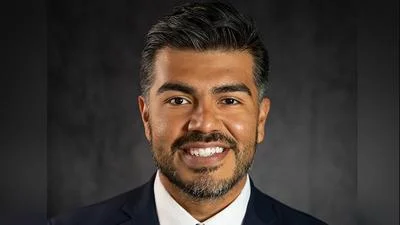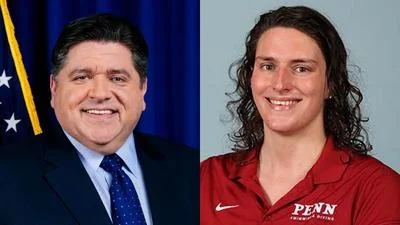Illinois Gov. J.B. Pritzker
Illinois Gov. J.B. Pritzker
Illinois Gov. J.B. Pritzker calls it a "fair tax," but critics say it is far from fair and that it would be a mistake to support when it appears as a referendum question on ballots in November.
Pritzker, since taking office in 2018, has proposed altering the state income tax structure from a flat tax rate to a graduated or progressive tax rate. Six levels based on income would be created, with the lowest earners paying about a 4.75-percent rate and the highest earners up at or near 8 percent.
Illinois Business Alliance (IBA) President Jared D. Carl says this plan could spell disaster for the state because it will make Illinois less competitive with other states and push dollars out of state as residents and business investors alike look elsewhere for lower tax rates.

Illinois Business Alliance President Jared D. Carl
| Twitter
The state income tax has become a political tool in the last two decades, Carl said. He notes that from 1990-2010, the state income tax for everyone was a flat 3 percent rate. It had only risen half a percent from 1969-89, no matter the condition of the economy.
“Those relatively low, flat tax rates were the saving grace of an otherwise uncompetitive tax code,” Carl said.
But in 2010, after the Great Recession had struck the nation, Illinois politicians decided to raise taxes on individuals. Carl says that was a poor decision.
He says state lawmakers have “played yo-yo with the income tax rate,” as it was increased to 5 percent, lowered back to 3.75 percent, then hiked back to 4.95 percent. Complicating matters is the fact that pass-through businesses such as sole proprietorships, LLCs, partnerships, and S-corps are assessed a 6.45-percent income tax rate – actually, a rate of 4.95 percent with the 1.5-percent personal property replacement tax added on.
Pritzker, a Democrat, is the wealthiest governor in the country — and the second richest person to ever hold public office in the United States, behind only former New York City Mayor Mike Bloomberg. He has an estimated personal worth of $3.4 billion.
Pritzker promised during his successful campaign to increase education spending, lower Illinois’ pension liability, pay down the state debt, close the structural budget deficit and lower or at least freeze property taxes. All of those things would cost Illinois about $10 billion it does not have so spend, so how can the governor make it work?
He has targeted an income tax increase, along with other taxes and fee increases that he says will raise $6.9 billion. But critics, including Carl, say the income tax increases are a bad option and hope voters reject Pritzker’s plan this November.
If it is approved, Carl says, pass-through businesses with income of greater than $250,000 would pay rates of 9.25 percent, 9.35 percent, or 9.49 percent, with the personal property replacement tax.
“Every pass-through business owner who claims $250,001 or more in income would see a tax increase of at least 43 percent on all incomes of beyond $250,000,” Carl said. “What's more, the top rate of 9.49 percent wouldn't apply to marginal income alone; due to the 'recapture provision,' all income would be subject to the 9.49-percent rate.”
He says that means pass-through businesses that earn $1 million — possibly $750,000 based on their status — would pay the top rate of 9.49 percent on all their income. That would mean once a company tops $1 million, it would lose thousands of dollars to the higher tax rate.
That’s what chases away investment, Carl says.
“In effect, Gov. Pritzker's 'Fair Tax' would result in a three-point increase on every dollar earned for businesses responsible for the lion's share of pass-through business income, employment and investment,” Carl said.
He said a large chunk of other income, such as capital gains, ordinary dividends, qualified dividends and taxable interest earned by investors also would be taxed at the top rate. That’s a significant figure, since Illinois residents earned $58.8 billion through these means, and $42.8 billion of that belongs to people who would be hit by this new, higher rate.
In addition, $30.4 billion would be subject to the top rate and the 3-point tax increase.
Carl predicts pass-through business owners will look for tax savings when they see these kind of tax increases. A new recapture provision in their bracket will make them more skittish, and with federal tax reform eliminating their ability to deduct more than $10,000 in state and local taxes, it’s going to have a negative impact.
“It's well documented that businesses and individuals are leaving Illinois,” Carl said. “If voters enact the 'Fair Tax' in November, it will make this problem even worse.”






 Alerts Sign-up
Alerts Sign-up